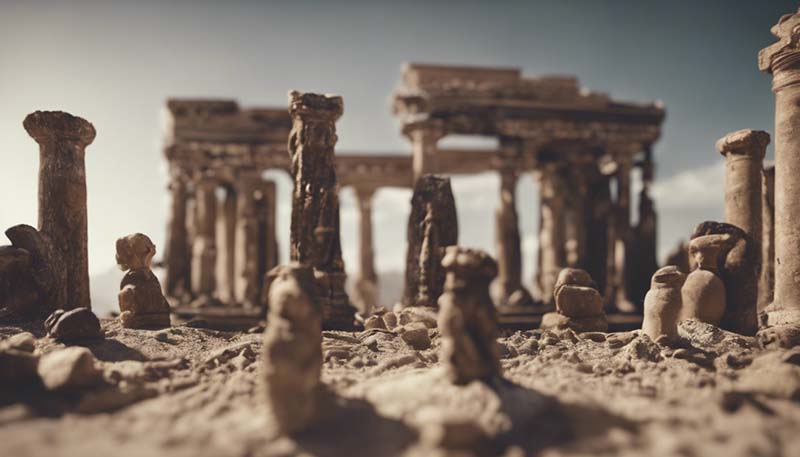The Legacy of the Ancient World: How It Shapes Our Modern Lives
The ancient world, with its rich tapestry of civilizations, has bequeathed a legacy that continues to influence our modern lives in profound ways. From the architectural marvels of the Egyptians and Romans to the philosophical insights of the Greeks and the administrative systems of the Sumerians, the ancient world has left an indelible mark on our culture, politics, science, and everyday existence.
Architecture and Engineering
The ancient world's contributions to architecture and engineering are evident in the grandeur of structures that have withstood the test of time, such as the Pyramids of Giza and the Roman aqueducts. Modern construction techniques, including the use of concrete and the concept of the arch, owe much to the ingenuity of ancient engineers.
Advertisement
Language and Literature
Many modern languages are descendants of ancient tongues. Latin, for example, has given rise to the Romance languages, while Greek has influenced medical, scientific, and philosophical terminology. The literature of ancient civilizations, from the epics of Homer to the philosophical dialogues of Plato, continues to inspire and educate.
Philosophy and Religion
The philosophical schools of thought founded in ancient times, such as Stoicism and Epicureanism, have shaped Western ethical and moral frameworks. Religious beliefs and practices, including those of Christianity and Islam, have their roots in the ancient Near East and continue to influence billions of people worldwide.
Science and Medicine
Ancient civilizations made significant strides in understanding the natural world. The scientific method was pioneered by the Greeks, and the mathematical principles developed by the Egyptians and Babylonians laid the groundwork for modern mathematics. In medicine, the contributions of Hippocrates and Galen are foundational to the practice of Western medicine.
Law and Governance
The concept of codified law, which is central to modern legal systems, has its roots in ancient civilizations such as the Babylonians with the Code of Hammurabi and the Romans with the Twelve Tables. The principles of democracy and citizenship were first experimented with in ancient Athens and Rome.

Art and Culture
The art of ancient civilizations continues to captivate and inspire. From the sculptures of classical Greece to the mosaics of Byzantium, the aesthetic achievements of the past have influenced countless artists and continue to be studied and emulated.
Economy and Trade
The ancient Silk Road, which connected the East and West, was a precursor to modern global trade networks. The economic principles and trade practices developed by ancient civilizations have laid the foundation for international commerce and economic policies.
Conclusion
The legacy of the ancient world is a rich and complex inheritance that has shaped the very fabric of our modern lives. It is through understanding and appreciating these ancient contributions that we can better comprehend our own cultural identities and the interconnectedness of human history.
As we continue to build upon the foundations laid by our ancestors, it is imperative that we recognize and honor the profound impact of the ancient world on our present and future. By doing so, we can ensure that the wisdom of the past informs and enriches the progress of the future.
Comments